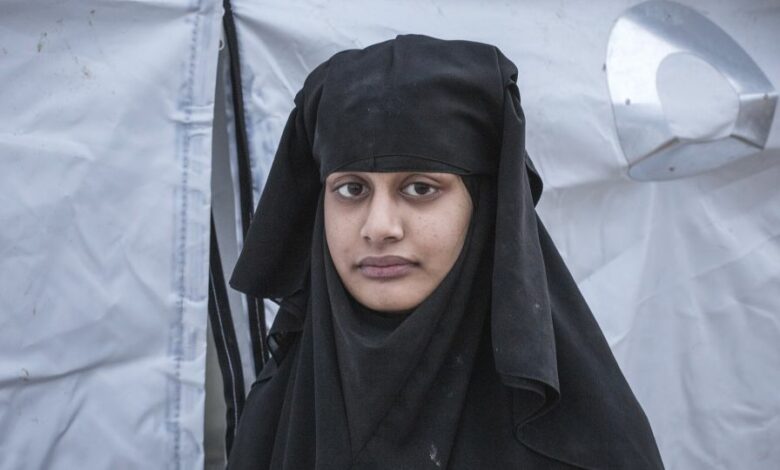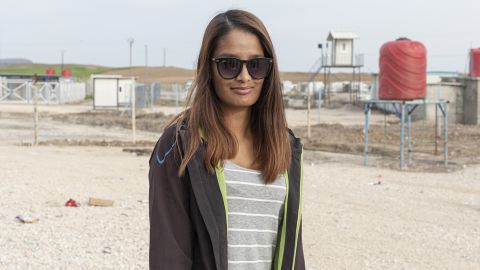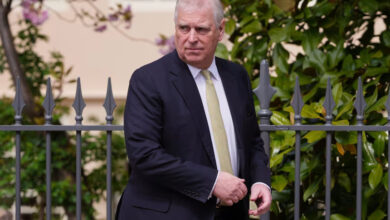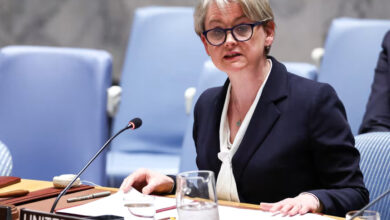
Shamima Begum, who left the United Kingdom to join ISIS at the age of 15, has lost her appeal against the decision to revoke her British citizenship.
Judge Robert Jay gave the decision on Wednesday following a five-day hearing in November, during which her lawyers argued the UK Home Office had a duty to investigate whether she was a victim of trafficking before removing her citizenship.
The ruling does not determine if Begum can return to Britain, but whether the removal of her citizenship was lawful.
Begum, now 23 and living in a camp in northern Syria, flew to the country in 2015 with two school friends to join the ISIS terror group. In February 2019, she re-emerged and made international headlines as an “ISIS bride” after pleading with the UK government to be allowed to return to her home country for the birth of her son.
Then-Home Secretary Sajid Javid removed her British citizenship on February 19, 2019, and Begum’s newborn son died in a Syrian refugee camp the following month. She told UK media she had two other children prior to that baby, who also died in Syria during infancy.
Begum’s lawyers criticized Wednesday’s ruling as a “lost opportunity to put into reverse a profound mistake and a continuing injustice.”
“The outcome is that there is now no protection for a British child trafficked out of the UK if the home secretary invokes national security,” Gareth Pierce and Daniel Furner, of Birnberg Pierce Solicitors, said in a statement seen by UK news agency PA Media.
“Begum remains in unlawful, arbitrary and indefinite detention without trial in a Syrian camp. Every possible avenue to challenge this decision will be urgently pursued,” it continued.
Rights group Amnesty International described the ruling as a “very disappointing decision.”
“The power to banish a citizen like this simply shouldn’t exist in the modern world, not least when we’re talking about a person who was seriously exploited as a child,” Steve Valdez-Symonds, the group’s UK refugee and migrant rights director, said in a statement.
“Along with thousands of others, including large numbers of women and children, this young British woman is now trapped in a dangerous refugee camp in a war-torn country and left largely at the mercy of gangs and armed groups.”
“The home secretary shouldn’t be in the business of exiling British citizens by stripping them of their citizenship,” Valdez-Symonds said.
Javid, the home secretary who removed Begum’s British citizenship, welcomed Wednesday’s ruling, tweeted that it “upheld my decision to remove an individual’s citizenship on national security grounds.”
“This is a complex case but home secretaries should have the power to prevent anyone entering our country who is assessed to pose a threat to it.” Javid added.
Begum has made several public appeals as she fought against the government’s decision, most recently appearing in BBC documentary The Shamima Begum Story and a 10-part BBC podcast series.
In the podcast series she insisted that she is “not a bad person.” While accepting that the British public viewed her as a “danger” and a “risk,” Begum blamed this on her media portrayal.
She challenged the UK government’s decision to revoke her citizenship but, in June 2019, the government refused her application to be allowed to enter the country to pursue her appeal.
In 2020, the UK Court of Appeal ruled Begum should be granted leave to enter the country because otherwise, it would not be “a fair and effective hearing.”
The following year, the Supreme Court reversed that decision, arguing that the Court of Appeal made four errors when it ruled that Begum should be allowed to return to the UK to carry out her appeal.
Travel to Syria
Begum was 15 when she flew out of Gatwick Airport with two classmates and traveled to Syria.
The teenagers, all from the Bethnal Green Academy in east London, were to join another classmate who had made the same journey months earlier.
While in Syria, Begum married an ISIS fighter and spent several years living in Raqqa. Begum then reappeared in al-Hawl, a Syrian refugee camp of 39,000 people, in 2019.
Speaking from the camp before giving birth, Begum told UK newspaper The Times that she wanted to come home to have her child. She said she had already had two other children who died in infancy from malnutrition and illness.
She gave birth to her son, Jarrah, in al-Hawl in February of that year. The baby’s health quickly deteriorated, and he passed away after being transferred from the camp to the main hospital in al-Hasakah City.
In response to that news, a British government spokesperson told CNN at the time that “the death of any child is tragic and deeply distressing for the family.”
But the spokesperson added the UK Foreign Office “has consistently advised against travel to Syria” since 2011.





